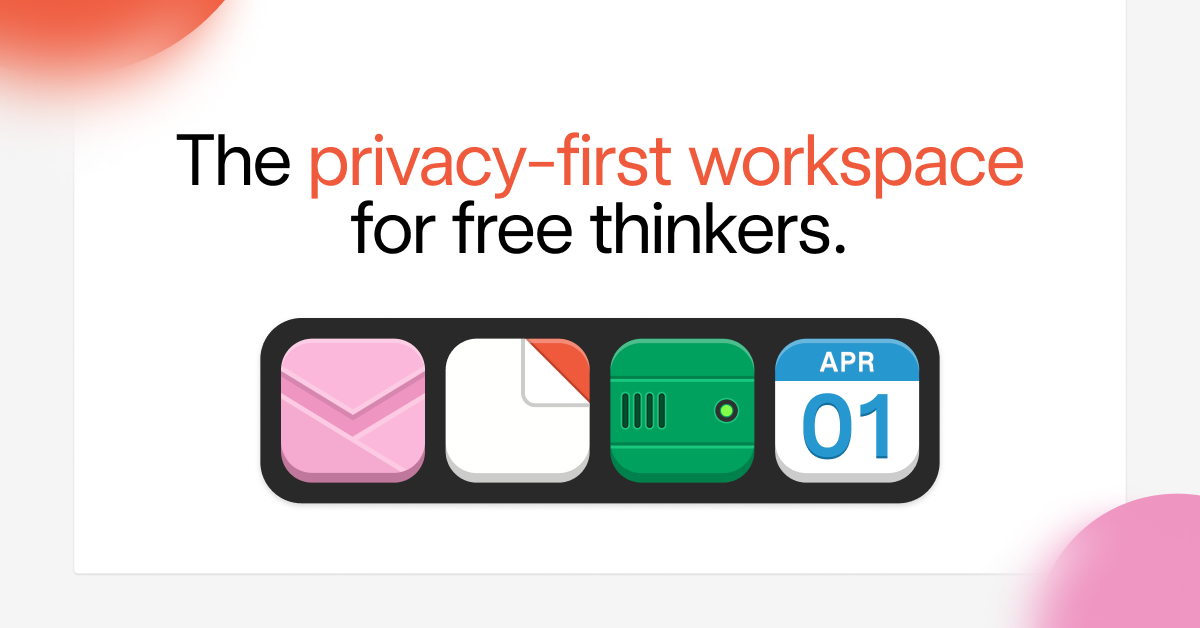
The new Web
Web 2.0, The Social Dilemma, Web 3.0
Internet advertising didn’t gain much traction until 1996, when advertising-focused companies argued that targeted ads, fueled by third-party tracking cookies, were the only way to get online users' attention to commercial appeals. A study of 1 Million popular websites found that nearly 90% of them exchange data with third-parties behind the scenes, allowing the following question to be answered – "What do your customers do outside your sites and apps?", which undermines the notion of privacy. That anticipated today’s behavioral advertising, where data compiled into consumer profiles not only infers their traits but also attempts to predict and modify future actions or beliefs.
Third-party tracking (e.g, cookies) enabled digital advertisers to follow users from site to site
Privacy is important because it protects you from the influence of others. The more companies know about you, the more power they have over you. Examples:
"They know who you sleep with because both you and the person you share your bed with keep your phones nearby"
"They know if your spouse is considering leaving you because she’s been searching online for a divorce lawyer"
"They track whether you pick up your phone in the middle of the night and search for things like 'loan repayment'"
"They infer your IQ based on the pages you “like” on Facebook and the friends you have"
"They track your restaurant visits and shopping habits"
"They know how fast you drive, even if you don’t have a smart car, because your phone contains an accelerometer"
"They can calculate your life expectancy based on how fast you walk, as measured by your phone"
"They can infer whether you suffer from depression by how you slide your finger across your phone’s screen"
"If they identify you as someone with a gambling problem, they may use that knowledge to lure you back into gambling"
How to block third-party cookies on Brave browser 👉🏻 brave://settings/cookies

How to enable Brave Shields to block trackers and ads on Brave browser 👉🏻 brave://settings/shields


If consumers were empowered to make meaningful privacy choices, the surveillance advertising business model would implode
But how to empower people to do that ? Educating them.
I know it is not easy cause most people do not dare to disrupt the status quo, focusing on what mass media and traditional educational systems have to say. But I´ll never give up trying. After all, I love teaching (no matter the size of my audience).
If you aim to start using more ethical apps, search the web or contact me for recommendations – there are tons of alternatives to Big Tech and some of them will certainly fulfil your demands.
“This Netflix documentary-drama hybrid reveals how social media is reprogramming civilization with tech experts sounding the alarm on their own creations”.
Tech worker actions are growing exponentially. There were more than 100 publicly reported actions in 2019, some involving thousands of people. This is around 3x and 9x the number of actions in 2018 and 2017, respectively
Amazon and Google were the main targets of tech activism from 2006 to 2019. When grouped together, the rideshare companies Uber, Lyft, and Bolt followed. Whereas Amazon and the rideshare companies were mainly targets of actions by less privileged workers, Google and Microsoft were targeted by full-time/white-collar employees.
It’s been argued that white-collar workers' movements have been fueled by moral / ethical concerns
In 2019, Facebook was hit with a $5 Billion fine, the largest ever levied by the Federal Trade Commission (FTC), for “deceiving” users about their ability to keep personal information private, after a year-long investigation into the Cambridge Analytica data breach (ref). Cambridge Analytica is the data analytics firm that worked with Donald Trump’s election team and the winning Brexit campaign to harvest data from 50 million Facebook profiles of US voters aiming to influence, via personalized political advertisements, voters' decisions at the ballot box.
In 2019, a group of YouTube creators sued YouTube for allegedly discriminating against their LGBTQ-focused videos by suppressing recommendations and making it difficult to earn ad revenue. The lawsuit also alleged that both YouTube’s machine learning moderation tools and human reviewers unfairly target channels that have words such as “gay,” “bisexual,” or “transgender” in the title (ref).
In 2019, Google agreed to pay close to 1 Billion Euros to French authorities to settle a fiscal fraud probe that began four years ago (ref).
In 2020, a group of YouTubers sued YouTube and its parent, Google, claiming that YouTube uses its automated tools to "restrict, censor and denigrate" based on race (ref).
From Airbnb to YouTube, every day we use closed, proprietary digital platforms that are typically centralized, concentrating control within a single authority (often a global corporation), which presents serious issues concerning their infrastructure, governance, and economics. Recently, a new generation of decentralized technologies (Web3 or Web 3.0) has emerged with the potential to overcome these structural problems.
Decentralization means network control (building, hosting, maintenance) is divided among multiple people and organizations. No group has complete control and making changes to the network requires widespread consensus. PayPal is a good example of a network that’s not decentralized. The PayPal company has complete control over everything that happens on their network – they can freeze accounts, stop users from accessing their money, and even reverse transactions.
Thanks to the democratization of decentralized computing power and storage, users can now access a more reliable and fairer internet built for the masses.
Improved technology, user experience, and education of users are key for the next paradigm shift
Blockchain technology (see intro next, in "Key concepts about decentralized networks and blockchain tech") has enabled (i) new forms of financial instruments — cryptocurrencies (Bitcoin, Ethereum, Cardano, etc – almost 10 000 currencies as I write), (ii) smart contracts, and (iii) dApp development frameworks. The proposed models are typically inclined towards
distributing resources
(micro-)paying users for actions performed
minimizing the use of private data
In 2015, Brewster Kahle, the founder of Internet Archive, was asked to present a “moonshot for the Internet” to five major US philanthropies, and he challenged builders to create a new, distributed web. Soon, early Decentralized Web (DWeb) pioneers started to answer that call and in June 2016 the Internet Archive hosted the first Decentralized Web Summit.
If you'd like your name to be listed on getdweb.net/principles as a supporter, click inside to fill out the required form.
01. Technology for Human Agency
We stand for technology that upholds poeople's security, privacy and self-determination
We discourage walled gardens
We aim for peer-to-peer relationships, rather than hierarchical control and power imbalance
Our technologies must minimize surveillance and manipulation of people’s behavior, optimize for social benefits, and empower individuals to determine how their data is used
02. Distributed Benefits
We believe that decentralized technologies will be most beneficial to society when the rewards and recognition of their success, monetary or otherwise, are distributed among those who contributed to that success
High concentration of organizational control is antithetical to the decentralized web
03. Mutual Respect
We stand for transparent organizational practices in a manner that actively pursues equity, mutual trust, and respect
04. Humanity
The objective of building a decentralized web is to protect human rights and empower people
We support the adoption of mechanisms that mitigate the potential for abuse
05. Ecological Awareness
Projects should aim to minimize ecological harm
This is an open-source protocol created by the company Bluesky, PBLLC, a fully independent company founded in late 2021. However, the bluesky project started in 2019 after Twitter co-founder and ex-CEO’s announcement that Twitter would be funding a small team to develop an open protocol for decentralized social media.

The Bluesky company will soon launch its prototype of social network based on the aforementioned protocol. The app will be called Bluesky Social and if you wish you can register for a waitlist to test the app in its private beta stage, i.e. before being launched to the public.
The protocol is based on a hybrid federated architecture, i.e. it borrows features from peer-to-peer networks (ref). Main possibilities:
(Thousands of) servers worldwide host the software/protocol, and each ‘service’ is independently and voluntarily administrated by a singular person or company.
Users of the app will be able to (i) choose the service(s) where their accounts will be hosted, (ii) connect to any user in any other service, or (iii) switch to another service without losing their social graph (identity, data, and connections).
The founders and owners of Bluesky, PBLLC are:
Jack Dorsey, co-founder of Twitter (resigned from Twitter in late 2021).
Jeremie Miller, inventor of XMPP.
Jay Graber, the first CEO.

Arweave is a protocol that allows you to store data permanently on the web. The protocol matches people who have hard drive space to spare with those individuals and organizations that want to store data or host content forever. This is achieved through a decentralized tech called blockweave.
On top of the core Arweave protocol lives the permaweb: A global, permanent web of websites and applications that ‘live’ forever.
The Arweave community has built a complete suite of tools and services that allow you to launch completely decentralized applications that live on top of this permaweb.
Interplanetary File System (IPFS) is an open-source project, a peer-to-peer storage and file system protocol developed by Protocol Labs that taps into ideas pioneered by the decentralized digital currency Bitcoin and the peer-to-peer file sharing system BitTorrent.
IPFS is a distributed system for storing and accessing files, websites, applications, and data
When you add a file to IPFS, your file is split into smaller chunks, cryptographically hashed, and it's given a unique fingerprint at that point in time – the Content Identifier (CID). Those chunks, linked through metadata, are distributed among people's computers participating in the network (known as nodes). When some node looks up your file, it asks their peer nodes who's storing the content referenced by the file's CID.
Each node in the network stores only content it is interested in
Changes to a file don't overwrite the original, and common chunks across files' versions can be reused in order to minimize storage costs

In computer science, the information exchanged between devices through a network is governed by rules and conventions set out in communication protocol specifications. The nature of communication, the actual data exchanged, and any state-dependent behaviors, are defined by those specifications.
Electronic USD (eUSD price)
On February 24th 2023, the Electronic Dollar (eUSD), a decentralized stablecoin built with Reserve Protocol, officially launched on the Ethereum and MobileCoin blockchains.
MobileCoin (MOB price, ecosystem)





